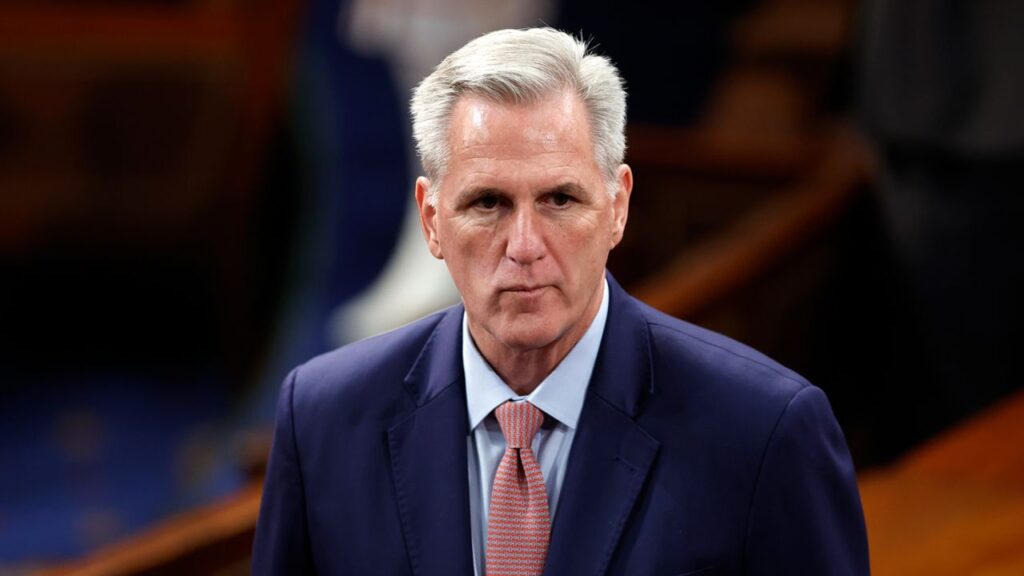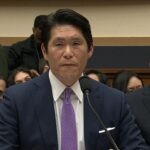
Published April 21, 2023
Congress is facing a ticking time bomb, as the political drama in Washington, DC, continues to underscore the need to find a solution to the debt limit. And as each tick on the clock grows louder, the negotiations will increasingly overshadow anything else happening on Capitol Hill.
Republicans, in control of the House, are seeking to use to threat of a default on federal debt to enact spending cuts. The White House and its Democratic allies are demanding a “clean” debt ceiling increase.
Neither side will get all of what they want. But House Speaker Kevin McCarthy has the most delicate tightrope to walk — and is left with the most thankless job in the negotiations. In public, Democrats can be as harsh as they want. But at the negotiating table, finding ways to allow McCarthy to claim a couple of victories could keep the time bomb from exploding.
The deal McCarthy unveiled Wednesday offers a conservative wish list of items in exchange for hiking the debt ceiling until March 2024. Named the “Limit, Save, Grow Act,” the GOP would return domestic spending to 2022 spending levels, repeal new funding for the IRS and green energy programs, impose new work requirements on safety net programs and block President Joe Biden’s student loan forgiveness executive order, among other policy goals.
All this, of course, for not even a full year’s extension. The March 2024 date would thrust the debt ceiling fight into the teeth of the presidential election, making the politics of a future extension even more dicey.
McCarthy told CNN that the risk of turning up the heat on the debt ceiling was worth it, given the size of the national debt. “Isn’t it risky to continue to have a debt this size?,” he asked. Of course, the risks to the nation’s credit — resulting in likely higher unemployment, higher mortgage rates and lost retirement savings — are also non-negligible.
As in any negotiation process, neither McCarthy nor the House Freedom Caucus members who have pushed him to take a hard line can expect to get all, or even most, of what they want. If the bill fails, McCarthy will be left with less leverage to make a deal with the White House. But if McCarthy can pass this negotiating bill — no easy task given the Republicans’ slim majority in the House — the White House should pick a high-visibility sacrificial lamb to offer in the name of getting a deal done.
The most likely area for common ground would seem to be permitting reform around new oil drilling projects, which the Biden administration has already shown a willingness to buck the environmental lobby on, and clawing back unspent Covid-19 aid money, largely a symbolic gesture but a sign that the pandemic is officially over.
Of the big-ticket items on the GOP agenda, none seem likely to pass a Democratic Senate. But if they wanted to take a low-stakes gamble, Democrats in Congress, some of whom were willing to take rhetorical shots against the president’s aggressive use of executive power to attempt to cancel student loan debt, might try to be clever. The Supreme Court is scheduled to rule on challenges to the loan cancellation later this year, and legal observers largely agree the White House will need a little bit of luck in order to prevail.
Democratic leaders, however, could offer to officially rescind the student loan cancellation plan in exchange for moving the debt ceiling limit beyond the next election. It would be a big swing. Progressives would hate it, of course, and conservatives would have to agree to take a win on the merits in exchange for losing the leverage of an election year debt ceiling fight.
But with the program facing legal jeopardy to begin with, it may make sense for it to be the first to be cut. And, politically, it would be a smart way of signaling that leaders in Congress care about all Americans, including those who didn’t go to college, instead of being seen as favoring those who took out loans for higher education.
On the other side of the political aisle, conservative hardliners shouldn’t press their luck. Trying to use the debt ceiling to enact changes to safety net programs — such as imposing work requirements on Medicaid, which even conservative stalwarts like the Heritage Foundation’s Robert Rector call a bad idea — is a bridge too far.
McCarthy will continue to walk the precipice between moderates who are willing to make deals with the other side and hardliners who don’t trust him. But despite being dealt a tough hand, he has played it about as well as could be expected.
If he is able to keep his caucus together and pass their first wish list bill, Democrats will need to overcome their distaste for brinksmanship and make some sacrifices, too. Refusing to negotiate will only cause the ticking clock to grow even louder.
Patrick T. Brown is a fellow at the Ethics and Public Policy Center, where his work with the Life and Family Initiative focuses on developing a robust pro-family economic agenda and supporting families as the cornerstone of a healthy and flourishing society.
Picture from CNN
Patrick T. Brown is a fellow at the Ethics and Public Policy Center, where his work with the Life and Family Initiative focuses on developing a robust pro-family economic agenda and supporting families as the cornerstone of a healthy and flourishing society.











